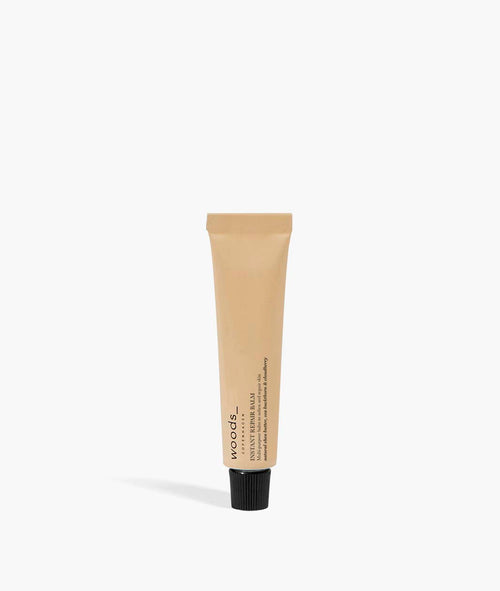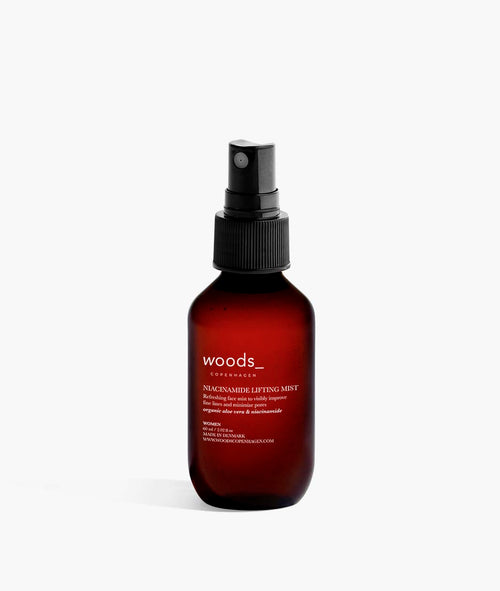Is makeup harmful to the skin?
20,000. That's how many pores the average adult has on their face. It's, therefore, not difficult to understand why anything touching your face can influence your skin's balance and well-being. This includes makeup. Like everything else, how makeup interacts with the skin and what it can tolerate varies from complexion to complexion. Unfortunately, makeup can both be drying and clog the skin's pores, so it's crucial that your makeup routine consists of products that can cooperate with your skin. Whether makeup is harmful to the skin is, therefore, not a yes/no question—it depends on individual skin and the product. However, there are some essential steps that can always be helpful to improve your routine (and skin).
Bacteria-infested brushes are a no-go
How often do you wash your makeup brushes?
Even when not in use, our makeup brushes collect dust, dirt, and bacteria, which can be transferred directly to your skin. Not to mention your favorite brushes, where makeup residues and other bacterial particles also accumulate. When these come into contact with the skin, they can lead to anything from irritation to clogged pores and subsequent blemishes. Therefore, it's always a good idea to add washing your makeup brushes to your weekly tasks. Fortunately, this can be easily done with lukewarm water and a cleansing product with gentle, natural cleansing actives, such as our Daily Foaming Cleanser.
Simply massage a few drops of the cleansing product into the bristles of your brushes, then rinse them with lukewarm water, and let them air-dry on a clean cloth or towel. It takes a few minutes, but this habit can make a big difference for your skin!
Your makeup also expires
...unfortunately. A fact that can be particularly frustrating if you've spent a lot of money on the product or you like to have a variety of options. But besides losing its effectiveness, expired products can also accumulate bacteria over time, possibly leading to impurities, bumps, infection, or rashes. On your makeup’s packaging, you can find a symbol indicating how many months the product is durable. Unfortunately, it's often shorter than we expect, but, therefore, it's a good idea to always keep an eye on it.
Our guide to a dewy, glowy base
Moisturize, moisturize, and then moisturize again. There's nothing worse than your makeup starting to flake, peel, or settle into every crevice of your skin during the day. And moisture still stands as an undefeated remedy for achieving the smoothest and most radiant surface. Apply your favorite moisturizer and let it penetrate the skin for a few minutes before applying your makeup. Optionally, supplement with an eye cream to awaken the eye area and avoid drying out the thin, sensitive skin located there.
One thing is what's good to do before applying makeup. Another thing is what's wise to do afterward. Especially for those of us who love makeup, it can be a good idea to double cleanse the skin after a long day. It's actually quite simple: First, apply a cream-based cleanser to remove the buildup of makeup, sunscreen, and dirt you've collected during the day. Then follow up with a water-based cleanser to remove any residue and bacteria that may have been left on the skin. Remember to moisturize the skin afterward with a good, nourishing cream.
Psst... If your skin tends to be on the dry side, it might make sense to reverse the ritual and start with a water-based cleanser.
Skincare alternatives to makeup
If you lean towards the natural look or are looking for more skin-friendly alternatives to add to your makeup collection, you've come to the right place. Below, we've gathered a range of products that can help give your skin an instant glow, highlight your natural, wonderful features—and at the same time, care for your skin:
Niacinamide Lifting Mist: With its ability to refresh and moisturize, this product is a true purse essential to awaken the skin and promote a healthy appearance. Simultaneously, the highly active ingredient niacinamide works in the skin to even out skin tone, strengthen the skin's defense, and promote its elasticity. Use it before, without, or after makeup.
Instant Repair Balm: Set your eyebrows, use it as a natural highlight, or give your lips a glossy effect. Our Instant Repair Balm is loved for its versatile effects and its ability to care for dry and damaged skin thanks to the addition of regenerating natural shea butter and nourishing berries. The product is also available in a larger version in the form of our Repair Body Balm.
Sun Drops: Did someone say glow? With sugar-derived tanning actives, our Sun Drops give the skin a discreet, sun-kissed effect, while the ingredient Sodium PCA promotes the skin's absorption of ambient moisture to leave a moist and radiant result.
Oh, and try mixing a few drops of our Vitamin Face Oil to your foundation for a luminous, dewy appearance while adding hydration to your skin.
We hope our tips have given you better insight into how you can stick to your routines while addressing your skin's needs. We believe that knowledge is the root of the best results.
Sources:
- Gallagher, G. (2020) When Does Makeup Expire? Gallagher, G. Medically reviewed by Cobb, C. healthline.com
- Stokes, V. (2022) 7 Easy Steps To Keep Your Makeup Brushes Squeaky Clean, Medically reviewed by Frye, S. N (2022) healthline.com
Related Products
More posts
-
3 common myths about dry skin – debunked
It’s itchy, it’s uncomfortable, and it’s unwanted. Dry skin can seem like a curse, which is why we want you to avoid pitfalls that can potentially make it worse. Get...
Read more -
Restoring damaged skin: your guide to a healthier barrier
Your skin, the body's largest organ, is a remarkable protector. Actually, it serves as quite the bodyguard (literally). But sometimes, it faces various forms of damage, caused by everything from...
Read more -
Breaking beauty ideals: how to love the skin you’re in
In a world increasingly obsessed with curated images and filtered realities, the pressure to conform to unrealistic beauty standards has never been higher. Many of us face daily comparisons to...
Read more
- Choosing a selection results in a full page refresh.
- Opens in a new window.





